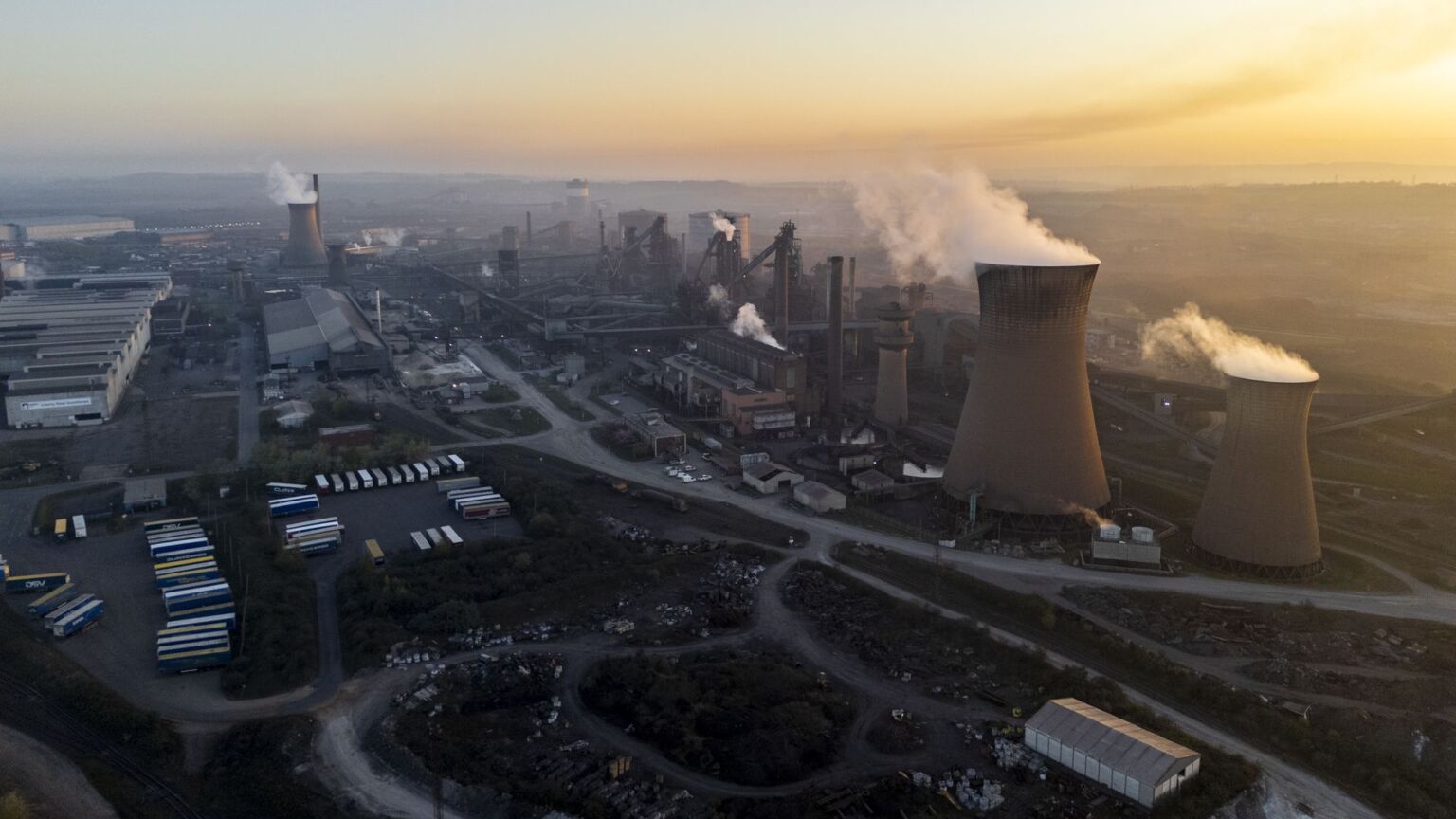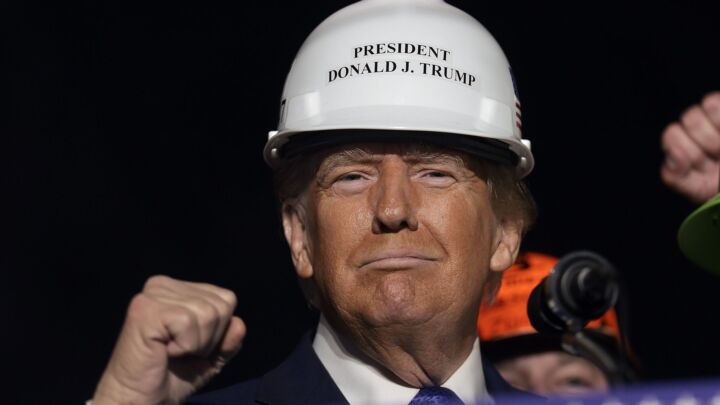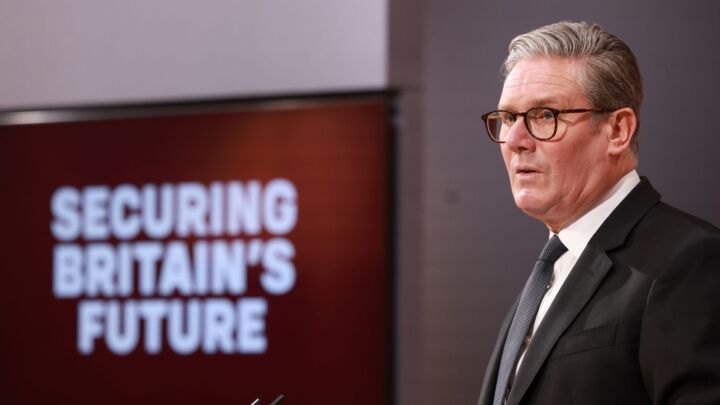Labour will bury British Steel, not save it
Net Zero zealotry is vandalising industry.

Want to read spiked ad-free? Become a spiked supporter.
In a rare Saturday sitting of parliament, MPs voted this weekend to allow the UK government to assume operational control of British Steel. The emergency legislation will be used to block the firm’s Chinese owner, Jingye, from closing down its two blast furnaces in Scunthorpe, Lincolnshire. Full nationalisation is likely on the way.
There is no doubt that government intervention was necessary to prevent the plant’s closure. Jingye, which claims it was losing £700,000 per day from the Scunthorpe steelworks, was clearly determined to cut its losses and run. Negotiations over a support package broke down last week when Jingye rejected the government’s offer to cover the costs of the iron and coal needed to keep the furnaces running. It also rejected what business secretary Jonathan Reynolds described as ‘one of the largest government grants in British history’. It then became clear that Jingye was selling off its stockpiles and refusing to pay for past orders of raw materials, and thus had hoped to starve the furnaces and render them inoperable (without coal keeping the temperature high, furnaces can sustain permanent damage). Restarting the furnaces would not have been impossible in this event, but it would have been a costly and complex process.
The loss of British Steel’s blast furnaces would have been devastating for the plant’s 2,700 employees and for Scunthorpe, which has been a steelmaking town since the 19th century. But it also would have been devastating for the UK. The nation that invented modern steelmaking would become the only G7 nation incapable of producing ‘primary’ or ‘virgin’ steel. This is essential for carmaking, infrastructure, the defence industry and many other critical manufacturing sectors.
This weekend’s emergency legislation has certainly bought the steelworks some time, but UK PM Keir Starmer has some serious brass neck to claim that he has ‘saved’ British steelmaking. On the contrary, his government is committed to the very policies that have made steelmaking and other heavy industries unviable in the UK.
Of course, many factors that have battered the British steel industry are beyond the government’s control, from China’s ‘dumping’ of cheap steel on global markets to Donald Trump’s tariffs. Yet the overwhelming source of today’s crisis in UK steelmaking is the extortionate cost of energy and of environmental policy.
The carbon intensity of steelmaking has led to numerous government attempts to ‘green’ the industry. Port Talbot in Wales, owned by India’s Tata Steel, shut down its last blast furnace in September and will replace it with an eco-friendly ‘electric arc’ furnace. This has come at the cost of more than 2,500 jobs, as the new processes require less labour. Port Talbot will also be unable to produce virgin steel, as the electric furnaces can only recycle steel from scrap metal. For all the government’s crowing about ‘saving’ Scunthorpe and the steel industry, fewer jobs and no more virgin steel is precisely what it had envisaged for the British Steel site (although it had hoped Jingye would keep one of the blast furnaces running during the transition).
Net Zero has also given the UK the highest industrial energy costs in the developed world. For decades, expensive and unreliable renewable energy, namely wind and solar, has been prioritised over cheaper, more reliable fossil fuels and nuclear – and Labour is doubling down on this failed strategy. Under Net Zero secretary Ed Miliband, new drilling for oil and gas in the North Sea has been blocked, while fracking for the gas beneath the Earth has been banned indefinitely. The upshot is that energy production has fallen, energy costs keep rising and heavy industry has all but become unviable.
The end of coal power and coal mining in general has proved especially devastating for the steel industry. Coal is by far the cheapest source of energy. Britain has it in abundance, yet it has been banished from the UK’s energy mix. Coincidentally, just days before the government’s talks with Jingye collapsed, the iconic chimney stack of the Cottam coal plant in Nottinghamshire was demolished. The Ratcliffe coal plant, the last in operation, turned off its turbines last year, bringing an end to Britain’s 142-year reliance on the black stuff for energy.
Steel blast furnaces are fuelled by coking coal, which today has to be imported at great expense. Plans for a new coal mine in Whitehaven, Cumbria that could have served British steelmakers were opposed by the Labour government and blocked by the courts. The reliance on coal imports has only added to the peril facing the Scunthorpe steelworks. The UK government is now in a race against time to ensure sufficient coal arrives from Japan before the blast furnaces cool down for good. The Royal Navy may even have to be enlisted to ensure the delivery isn’t intercepted, so high are the stakes.
All of these disastrous decisions, from the abandonment of fossil fuels to the blocking of coal mines, are essentially seen as ‘progressive’ by our Net Zero-obsessed elite. The closure of the Ratcliffe power station was hailed by Ed Miliband as a demonstration of ‘Britain’s leadership’ on the climate. The ban on the Whitehaven coal mine was necessary, he said, to ‘send a signal to the world’ about the evils of carbon emissions. Yet the dangers of overreacting to carbon emissions simply do not register with the Labour leadership. In recent weeks, both Keir Starmer and his chancellor, Rachel Reeves, have declared, delusionally, that Net Zero will boost economic growth, even as British industry continues to collapse under its weight.
Labour’s intervention has brought British Steel some time. It may well have prevented the disorderly shutdown of Britain’s last blast furnaces, which would have had devastating consequences for the economy as a whole. Yet far from ‘saving’ British steelmaking, Labour continues to bury it. It’s hard to see heavy industry surviving another four years of eco-vandalism.
Fraser Myers is deputy editor at spiked and host of the spiked podcast. Follow him on X: @FraserMyers.
Who funds spiked? You do
We are funded by you. And in this era of cancel culture and advertiser boycotts, we rely on your donations more than ever. Seventy per cent of our revenue comes from our readers’ donations – the vast majority giving just £5 per month. If you make a regular donation – of £5 a month or £50 a year – you can become a and enjoy:
–Ad-free reading
–Exclusive events
–Access to our comments section
It’s the best way to keep spiked going – and growing. Thank you!









Comments
Want to join the conversation?
Only spiked supporters and patrons, who donate regularly to us, can comment on our articles.